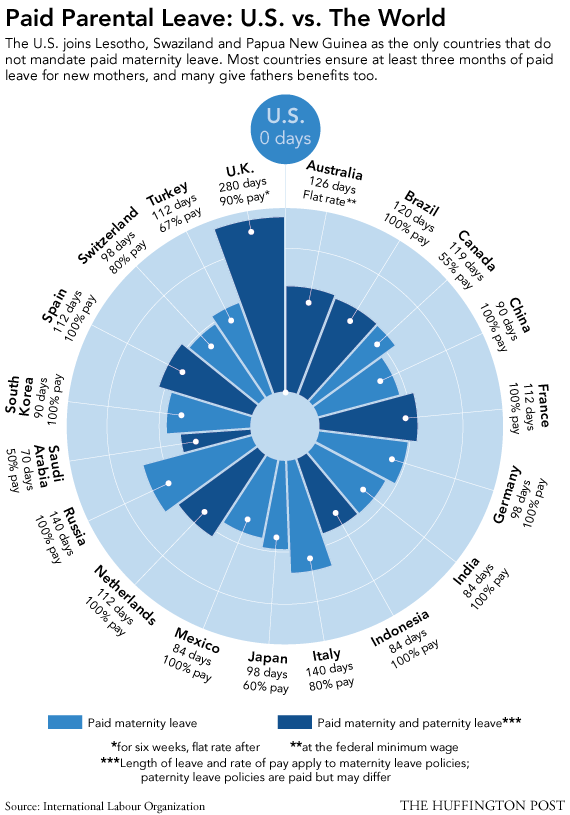When asked by a friend: “Do you think pregnancy is sacred?” my thoughts were conflicted and very tied to my ideas about parenting. I’m experiencing pregnancy through the lens of planning to raise this child, while my friend wants to be a surrogate for someone else but never have her own children (but sadly one can’t become a surrogate without already successfully delivering a baby). Her question launched us into a lively Google Hangout discussion and brought up the thoughts shared below.
One of the reasons I wanted to have a biological child rather than adopting was to get the unique experience of breastfeeding. When planning for the birth of #BabyOslock, Austin and I are reading about mindfulness and finding healthcare facilities that offer water births. In general I view pregnancy and childbirth as natural life events that one might go through. Despite these opinions, I find labeling pregnancy or motherhood as sacred problematic. The cultural baggage and associations between motherhood and fatherhood are extremely different with motherhood feeling more related to actual child rearing than fatherhood. Labeling motherhood as sacred seems like a way of positively reinforcing this difference, making parenthood something more so experienced by women, and thus reinforcing traditional gender roles that already permeate discussions of parenting.
My expectations for Austin and myself as parents involve us being equal partners who spend similar amounts of time caring for #BabyOslock. I realize that I’m privileged to have a partner to parent with and especially one that I can realistically expect to be an equal caregiver. The fact that most women in heterosexual relationships cannot expect this from their male partner even if they want it, however, pervades every book we’ve read about parenting, even the ones from feminist sources (like Gender Neutral Parenting or Redefining Girly – both written by stay-at-home moms). While we enjoyed both of these books, especially Gender Neutral Parenting, they both assumed at least one parent would get to stay home and raise the child, giving parents way more influence over their child’s surroundings than parents who will be reliant on childcare.
The books and blog articles we’ve read so far are almost entirely written from the assumption that a mother will take significant time off and that she will be the primary caregiver – they also seem to assume that this division is positive, natural, or inevitable. These assumptions are what I find most problematic. As a feminist, I want women and men to be empowered to make a variety of choices: primarily be an earner, primarily be a caregiver, be 50% earner 50% caregiver, or somewhere in the middle. While I think we do need to analyze which scenario occurs most often and how cultural expectations lead to these outcomes, I don’t intrinsically have a problem with a woman being the primary caregiver / a man being the primary earner. I just want the alternative family structures to be included more, especially in conventional books like the ones mentioned below.
What To Expect When You’re Expecting – is a book the size of a Bible. It’s huge and extremely detailed, though with bullets and headings that allow for skimming to sections that you feel inclined to read about. When Austin looked at the chapters in the front of this 614-page book he saw that there was a section focused specific for dads (or non-pregnant partners). The section was 19 pages long. Rather than dedicating a partner to 19 pages, it would be better to include the partner—without the use of heteronormative assumptions—throughout the book. But even this solution would be problematic since there are so many women who experience pregnancy without a partner and continually assuming that one has a partner is also exclusionary.
The Baby Book by the Sears is extremely long-winded and doesn’t just assume but often argues for women being the primary caregiver. In the introduction, it has a small section titled: “Attachment Parenting Includes Fathers.” But the main conclusion is that a father’s role is to “create a supportive environment that allows mother to devote her energy to the baby.” While excluding same-sex parents, this quote exemplifies how the book writes about a man’s contribution.
Much further along, the book discusses balancing work and child rearing – something the authors assume women don’t intrinsically want while also assuming men don’t need any advice on balancing work and child rearing. Rather than actually focusing on how to balance the two, the chapter pressures moms to stay home longer, start off as very part-time, start a business from home, bring the baby to work, etc. These suggestions show a disconnect from the reality most people face, especially Americans who have meager legal rights related to childrearing – article about paid leave – article about pregnancy discrimination. The entire chapter only mentions one’s significant other in a tiny paragraph that says if a mom is helping to earn income for the family, it’s only fair that dad help with household activities… That’s it! There’s so much more to say about this and ways it can be done and navigated, but instead the Sears spent all of their time talking about how a mom should change her work environment and not go back sooner than she has to.

Obviously Austin and I aren’t parents yet and I’m interested to see how our opinions develop and evolve with time. I’d love to hear others opinions or criticisms about parenting narratives 🙂